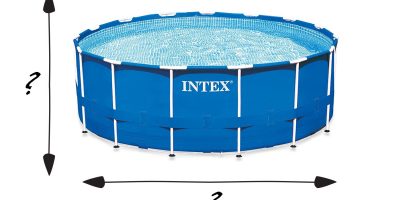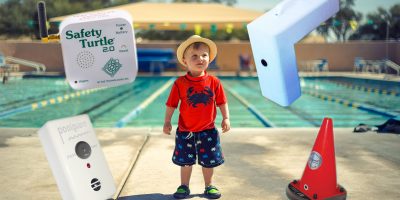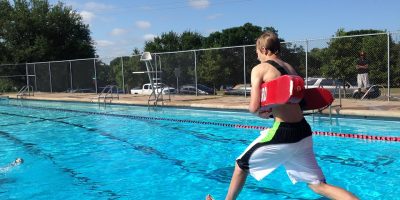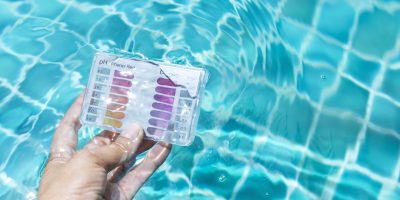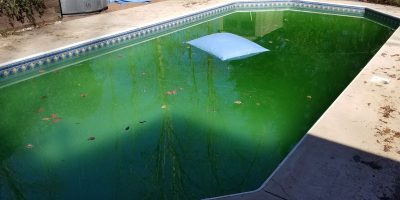Pool owners often find themselves privy to unsolicited advice from others who have had a pool before. Often times, these claims make maintenance sound easy to a new owner.
“Running your pool with a high chlorine level is fine — it is better than running it low!”
“As long as the pool isn’t cloudy or green, you have nothing immediate to worry about.”
These sound easy, but prolonged thinking and behaviors like these can lead to significant damage to your equipment and to your bank account.
Let me tell you a real story from work. One owner had run their pool using this mindset. They didn’t test their chemicals often at all, and resorted to quick visual checks to make sure the pool was fine. Two years after installation, the pump motor started running louder and louder until it finally gave out, and the heater also was leaking.
The service technician was called out and immediately identified the problem: the chemical levels were consistently imbalanced, which required the replacement of both the motor and heater. The owner found themselves with an invoice of several thousand dollars to get the pool up and running again.
Regular water testing and chemical treatment is the key to prevent long-term damage. Here, we will talk about common failures that result from improper water chemistry and how to prevent them.
4 Kinds of Damage from Imbalanced Pool Water
Pump Damage
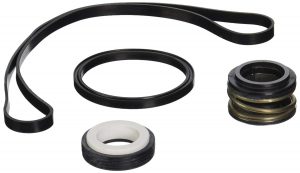
The inside of a pool filter pump is divided into two parts, the ‘wet’ and ‘dry’ ends. The electric motor needs to be kept dry and is separated from the wet end by a seal. When chlorine levels are run too high, the chemical acts more corrosively and will eat these rubber-like materials until the point where they fail. In addition, when your pH values are too low, the more acidic water will also corrode any metallic parts that come in contact with it.
Heater Damage
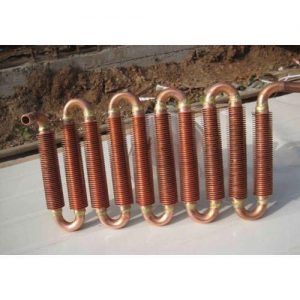
The most common pool heaters are gas-fired. The flame is used to heat a metallic structure known as the heat exchanger. A common failure from imbalanced water is failure of this exchanger from being exposed to acidic water. As mentioned before, acidic water means the pH of the water is far too low. Once the exchanger leaks and fails, in some cases it can be replaced and rebuilt. Often times, the cost of replacement is close to the price of a brand new heater, and since corrosion leads to collateral damage in the unit, a total replacement is often the only way to fix a failed exchanger.
Salt Chlorine Generator Damage
With a chlorine generator, dissolved salts in pool water split the compound Sodium Chloride (which we know as salt) into a sanitizing agent for your pool water. While providing a boost to your chlorine levels, salt generators also tend to cause pools to generally run with a higher pH level. Owners with salt generators often find themselves adding more muriatic acid to the water to counteract the high pH level. Periodically, manufacturers also suggest you to take out your salt generator and inspect the little electric plates inside your unit for buildup. Not doing this periodic maintenance reduces the effectiveness of your unit and may lead to premature failure.
Other Seal/Plumbing Issues
There are other seals and O-rings among your pool equipment and plumbing. As mentioned with the pump earlier, high chlorine levels will eat these seals and will eventually cause a leak to form. In addition, high chlorine will also make your pipes more brittle, making them more susceptible to damage. A brittle, underground pipe shifted by a tree root can also create a below-grade leak, requiring the work of a leak detection and repair team.
Creating Balanced Water in a Nutshell
Now that we’ve talked about common damages resulting from imbalanced water, let’s go over the factors involved in creating balanced water.
Chlorine
Ideal Range: 1.0 – 5.0 ppm
Chlorine is mainly used in pools as a sanitizing agent. There are different chemical formulas used for water treatment, and they can be administered in liquid form, as pellets, or as disks in an erosion feeder. Some owners assume that chlorine can be maintained higher than the ideal range to prevent any algae blooms or unwanted growth, but there are some side effects to that. Besides obvious swimmer discomfort, high chlorine levels can contribute to equipment damage, mainly in those parts of your system that are in direct contact with water.
pH
Ideal Range: 7.2 – 7.8
pH is the scale used to measure a water’s tendency to be basic or acidic. A balanced level of pH also makes the chlorine work more efficiently. A level too low causes the water to corrode any metals it comes in contact with. Pool heaters are usually the most at risk when it comes to acidic water.
Alkalinity
Ideal Range: 80-120 ppm
Alkalinity serves as a buffering agent for your water’s pH level. An optimal alkalinity level prevents your pH from changing rapidly, a condition also known as “pH bounce.” Running your pool with a low alkalinity level for too long also increases the chances for your concrete surfaces to stain.
Calcium Hardness
Ideal Range: 200-400 ppm
This measurement is more for pools with concrete surfaces. Calcium Hardness at an ideal level will give the concrete a longer lifespan. If your levels are too low, those surfaces are more prone to pitting and other damages. Levels too high cause a condition known as scaling, which is where calcium will buildup in your pool and your equipment. The only way to rectify a level too high is to drain the water in your pool and dilute it with new water.
Salt Level
Ideal Range: 2000-3500 ppm
For those pools with salt chlorine generators, the main concern with your salt level is making sure that it does not get too high. Corrosion of metals will result, and the only way to lower your salt is to drain and refill the water.
Reconciling chemical factors in pool maintenance is similar to other around-the-home tasks. The more you keep up on it, the more less work you have to do in the long run. Make checking your pool chemicals a regular habit. Your finances will thank you, and so will your pool.




